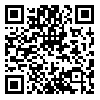1. Bluett EJ, Homan KJ, Morrison KL, Levin ME, Twohig MP. Acceptance and commitment therapy for anxiety and OCD spectrum disorders: an empirical review. J Anxiety Disord. 2014;28(6):612–24. https://doi.org/10.1016/j.janxdis.2014.06.008 [
DOI]
2. Verhulst FC, Achenbach TM, Van Der Ende J, Erol N, Lambert MC, Leung PWL, et al. Comparisons of problems reported by youths from seven countries. Am J Psychiatry. 2003;160(8):1479–85. [
DOI]
3. Costello EJ, He J ping, Sampson NA, Kessler RC, Merikangas KR. Services for adolescents with psychiatric disorders: 12-month data from the national comorbidity survey–adolescent. Psychiatr Serv. 2014;65(3):359–66. [
DOI]
4. Viner RM, Russell SJ, Croker H, Packer J, Ward J, Stansfield C, et al. School closure and management practices during coronavirus outbreaks including covid-19: a rapid systematic review. Lancet Child Adolesc Health. 2020;4(5):397–404. [
DOI]
5. Zolfaghari A, Elahi T. Children's level of anxiety in relation to their level of awareness and attitude towards corona virus based on the health belief model and the level of stress, anxiety and depression of mothers. Journal of Research in Psychological Health. 2020;14(1):40–55. [Persian] [
Article]
6. Folkman S. The case for positive emotions in the stress process. Anxiety Stress Coping. 2008;21(1):3–14. [
DOI]
7. Forman EM, Shaw JA, Goetter EM, Herbert JD, Park JA, Yuen EK. Long-term follow-up of a randomized controlled trial comparing acceptance and commitment therapy and standard cognitive behavior therapy for anxiety and depression. Behav Ther. 2012;43(4):801–11. [
DOI]
8. Ataie S, Fata L, Ahmadi Abhari A. Rumination and cognitive behavioral avoidance in unipolar mood disorder and social anxiety disorder: comparison between dimensional and categorical approaches. Iranian Journal of Psychiatry and Clinical Psychology. 2014;19(4):283–95. [Persian]
9. Moscati A, Flint J, Kendler KS. Classification of anxiety disorders comorbid with major depression: common or distinct influences on risk? Depress Anxiety. 2016;33(2):120–7. [
DOI]
10. Linares L, Jauregui P, Herrero-Fernández D, Estévez A. Mediationg role of mindfulness as a trait between attachment styles and depressive symptoms. J Psychol. 2016;150(7):881–96. [
DOI]
11. Khalili L, Dolatshahi B, Farhodi M, Niknam Z, Pourshahbaz A. The effectiveness of attention rehabilitation in decreasing focused attention and working memory deficits on multiple sclerosis patients. Studies in Medical Sciences. 2014;25(5):382–96. [Persian] [
Article]
12. Shirazi M, Azim H, Khosravani E. Effectiveness of psychological rehabilitation, using Dohsa-Hou, on hemodialysis patients' depression, anxiety, and stress in Zahdan city. Journal of Birjand University of Medical Sciences. 2016;23(2):130–40.
13. Bashi Abdolabadi H, Pilevar S, Saram AA. The effect of cognitive rehabilitation on cognitive function, memory, depression, and anxiety in patients with multiple sclerosis. Shefaye Khatam. 2016;4(3):28–40. [Persian] [
Article]
14. Mokhtari S, Mokhtari A, Bakizadeh F, Moradi A, Shalbafan M. Cognitive rehabilitation for improving cognitive functions and reducing the severity of depressive symptoms in adult patients with Major Depressive Disorder: a systematic review and meta-analysis of randomized controlled clinical trials. BMC Psychiatry. 2023;23:77. [
DOI]
15. Abbariki A, Yazdanbakhsh K, Momeni K. Investigating the effect of of computer-based cognitive rehabilitation on reducing cognitive avoidance in students with specific learning disorder. Psychology of Exceptional Individuals. 2019;9(33):69–96. [Persian] [
Article]
16. Habibi-Kaleybar R, Bahadorikhosroshahi J. Effectiveness of computerized cognitive rehabilitation on social cognition, inhibitory control and cognitive avoidance of students with learning disabilities. Neuropsychology. 2019;5(17):89–108. [Persian] [
Article]
17. Esmailzadeh Roozbahani A, Behroozi N, Omidian M, Maktabi GH. Effect of computerized cognitive rehabilitation on executive function and problem-solving of students with a mathematic learning disability. Empowering Exceptional Children. 2022;12(4):87–98. [Persian] [
Article]
18. Alipour A, Ghadami A, Alipour Z, Abdollahzadeh H. Preliminary validation of the Corona Disease Anxiety Scale (CDAS) in the Iranian sample. Health Psychology. 2020;8(32):163–75. [Persian] [
Article]
19. Sexton KA, Dugas MJ. The Cognitive Avoidance Questionnaire: validation of the English translation. J Anxiety Disord. 2008;22(3):355–70. [
DOI]
20. Bassak-Nejad S, Mehrabizadeh- Honarmand M. The relationship between post event processing and cognitive avoidance with scial anxiety among students. International Journal of Behavioral Sciences. 2011;4(4):355–40. [Persian] [
Article]
21. Hagen BI, Lerdal A, Søraas A, Landrø NI, Bø R, Småstuen MC, et al. Cognitive rehabilitation in post-COVID-19 condition: a study protocol for a randomized controlled trial. Contemp Clin Trials. 2022;122:106955. [
DOI]
22. Akhlaghi Jami L, Hassani-Abharian P, Ahadi H, Kakavand A. Efficacy of cognitive rehabilitation therapy on stress and anxiety of the high school second level female students. Advances in Cognitive Science. 2020;22(2):111–9. [Persian]
23. Jafari R, Bafandeh H. The effectiveness of cognitive rehabilitation on the improvement of depression symptoms and brain wave pattern in patients with depression disorder. Community Health Journal. 2019;13(3):64–72. [Persian] [
Article]
24. Halajani F, Jameinezhad F, DashtBozorgi Z, Peymani Foroshani R, EsmaeiliShad B. The effect of cognitive rehabilitation group training on perceived stress, depression and quality of life among primigravid women with pregnancy anxiety. Iranian Journal of Rehabilitation Research in Nursing. 2019;6(1):10–7. [Persian] [
Article]
25. Rabipour S, Raz A. Training the brain: fact and fad in cognitive and behavioral remediation. Brain Cogn. 2012;79(2):159–79. [
DOI]
26. Sohlberg MM, Mateer CA. Improving attention and managing attentional problems. Adapting rehabilitation techniques to adults with ADD. Ann N Y Acad Sci. 2001;931:359–75.
27. Wehry AM, Beesdo-Baum K, Hennelly MM, Connolly SD, Strawn JR. Assessment and treatment of anxiety disorders in children and adolescents. Curr Psychiatry Rep. 2015;17(7):591. [
DOI]
28. Hassan Nattaj F, Taghipour Javan AA, Faramarzi S, Rastgar F. The impact of cognitive-based video games on executive functions in preschool children with neuropsychological learning disabilities. J Child Ment Health. 2015;2(2):35–45. [Persian] [
Article]
29. Najarzadegan M, Nejati V, Amiri N, Sharifian M. Effect of cognitive rehabilitation on executive function (working memory and attention) in children with attention deficit hyperactivity disorder. Scientific Journal of Rehabilitation Medicine. 2015;4(2):97–108. [Persian] [
Article]





